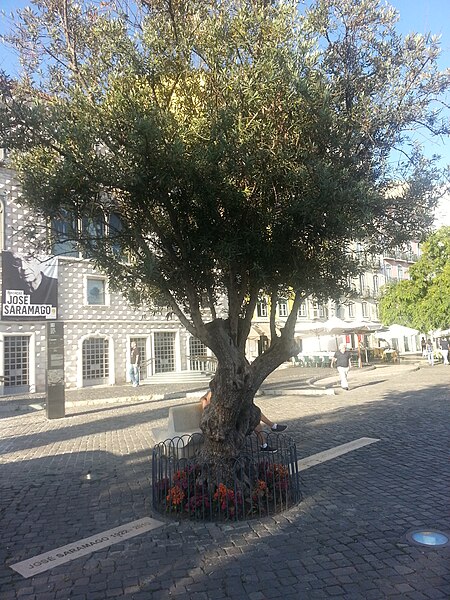The culture of Portugal is a very rich result of a complex flow of many different civilizations during the past millennia. From prehistoric cultures, to its Pre-Roman civilizations, passing through its contacts with the Phoenician-Carthaginian world, the Roman period, the Germanic invasions of the Suebi, Buri and Visigoths, Viking incursions, Sephardic Jewish settlement, and finally, the Moorish Umayyad invasion of Hispania and the subsequent expulsion, during the Reconquista, all have made an imprint on the country's culture and history.
A 19th-century Portuguese couple with typical rural clothes from Minho Province, in a Singer sewing machine advertisement card, distributed at the World's Columbian Exposition, Chicago, 1893
Rooster of Barcelos, the iconic Portuguese souvenir
Centum Cellas Tower, c. 1st century AD (Roman period)
Aldeia Velha de Monsanto
José de Sousa Saramago was a Portuguese writer. He was the recipient of the 1998 Nobel Prize in Literature for his "parables sustained by imagination, compassion and irony [with which he] continually enables us once again to apprehend an elusory reality." His works, some of which can be seen as allegories, commonly present subversive perspectives on historic events, emphasizing the theopoetic human factor. In 2003 Harold Bloom described Saramago as "the most gifted novelist alive in the world today" and in 2010 said he considers Saramago to be "a permanent part of the Western canon", while James Wood praises "the distinctive tone to his fiction because he narrates his novels as if he were someone both wise and ignorant."
Saramago in January 2008
"Thank you José Saramago", Lisbon, October 2010
José Saramago's ashes burial place
Saramago at Teatro Jorge Eliécer Gaitán in Bogotá in 2007








